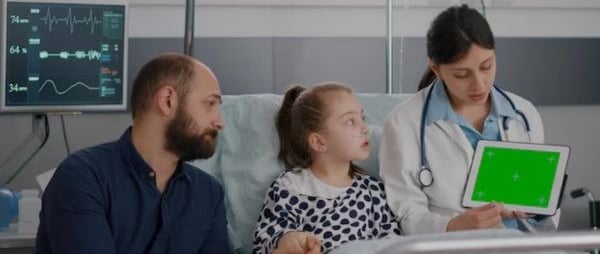The Role of Genetics in Cancer: Understanding Family History and Risk Factors
Learn how genetics and family history influence cancer risk. Understand the role of inherited genes in cancer development and how early detection and lifestyle changes can help.
Dr. Sayoni Bhanja
1/3/20253 min read


The Role of Genetics in Cancer: How Family History Affects Risk with Dr. Sayoni Bhanja
Cancer is a disease influenced by both genetic and environmental factors. While lifestyle choices and environmental exposures play significant roles, genetics and family history can also increase an individual’s cancer risk. Inherited genetic mutations can predispose individuals to specific types of cancer, making early detection and preventive strategies crucial.
In this blog, Dr. Sayoni Bhanja, an experienced cancer specialist, shares valuable insights into how genetics and family history affect cancer risk and what proactive steps can be taken for prevention and early detection.
1. Understanding the Genetic Connection to Cancer
Genes carry the instructions for cell growth, division, and repair. When these genes mutate, they can cause cells to grow uncontrollably, leading to cancer. While most mutations occur randomly, some can be inherited from parents, increasing the risk of developing cancer.
Key Inherited Cancer Genes:
BRCA1 and BRCA2: Linked to breast and ovarian cancers.
TP53: Associated with Li-Fraumeni syndrome, increasing the risk of various cancers.
MLH1 and MSH2: Linked to Lynch syndrome, increasing colorectal and endometrial cancer risk.
Dr. Sayoni Bhanja emphasizes, “Genetic predisposition doesn’t guarantee cancer, but it increases susceptibility. Early detection and proactive measures are key.”
2. How Family History Affects Cancer Risk
Family history plays a significant role in identifying genetic cancer risks. If multiple close relatives have been diagnosed with the same or related types of cancer, it may indicate a hereditary cancer syndrome.
Factors to Consider in Family History:
The number of family members diagnosed with cancer.
The type of cancer diagnosed.
Age at diagnosis.
Whether cancers occurred on one side of the family.
Dr. Sayoni Bhanja advises individuals with a family history of cancer to consult a specialist for a detailed risk assessment and possible genetic testing.
3. Genetic Testing: A Preventive Tool
Genetic testing can identify specific inherited mutations that increase cancer risk. This information helps patients make informed decisions about screenings, preventive surgeries, and lifestyle changes.
Who Should Consider Genetic Testing?
Individuals with multiple relatives diagnosed with cancer.
Early-age cancer diagnoses in the family.
Family members with known inherited cancer mutations (e.g., BRCA1, BRCA2).
Dr. Sayoni Bhanja explains, “Genetic testing isn’t just about diagnosis—it’s about empowering individuals to take control of their health through prevention and early detection.”
4. Preventive Measures for Individuals with Genetic Risk
If genetic testing reveals a higher cancer risk, several strategies can help reduce the chances of developing cancer:
Regular Screenings: Early and frequent screenings based on genetic risk factors.
Healthy Lifestyle Choices: Balanced diet, regular exercise, and avoiding tobacco and alcohol.
Preventive Surgeries: In some high-risk cases, preventive surgeries (e.g., mastectomy or hysterectomy) may be considered.
Medication: Preventive medications may be prescribed to lower cancer risk.
Dr. Sayoni Bhanja advises, “Proactive health measures can make a significant difference in outcomes for individuals with a genetic predisposition to cancer.”
5. Breaking Myths About Genetic Cancer Risk
Myth: If cancer doesn’t run in my family, I’m not at risk.
Fact: Most cancers occur due to random mutations, not inheritance.
Myth: Genetic testing guarantees cancer prevention.
Fact: Testing identifies risk but doesn’t prevent cancer—it allows for proactive steps.
6. Emotional and Psychological Support
A genetic predisposition to cancer can cause anxiety and stress. Dr. Sayoni Bhanja highlights the importance of emotional and psychological support for individuals and families dealing with hereditary cancer risks.
Support groups, counseling, and open conversations with healthcare providers can help manage the emotional aspects of genetic cancer risks.
7. Final Thoughts from Dr. Sayoni Bhanja
Understanding the role of genetics in cancer risk is essential for taking proactive steps toward prevention and early detection. Whether through genetic testing, lifestyle modifications, or regular screenings, informed decisions can significantly impact health outcomes.
Dr. Sayoni Bhanja concludes: “Genetics is not your destiny. Knowledge, early action, and a proactive approach can empower you to reduce your cancer risk and live a healthier life.”
